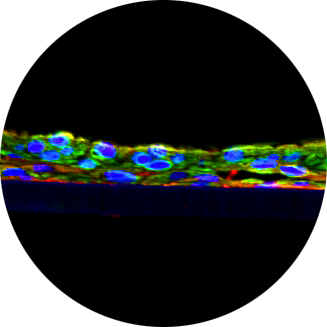Assessment of Skin Toxicity in an in Vitro Reconstituted Human Epidermis Model Using Deep Learning
- TR Number: 1029
- Authors: Fangyao Hu, Sara F Santagostino, Dimitry M Danilenko, Min Tseng, Jochen Brumm, Philip Zehnder, Kai Connie Wu
- Materials Tested: DMSO, Ruxolitinib, Afatinib, Alpelisib, Cetuximab, Cobimetinib, Erlotinib, Lapatinib, ldelalisib, lmatinib, Osimertinib, Palbociclib, Pictilisib, Poziotinib, Ruxolitinib, Sorafenib, Tofacitinib
- Link to PDF: https://pubmed.ncbi.nlm.nih.gov/35063406/
Skin toxicity is a common safety concern associated with drugs that inhibit epidermal growth factor receptors as well as other targets involved in epidermal growth and differentiation. Recently, the use of a three-dimensional reconstructed human epidermis model enabled large-scale drug screening and showed potential for predicting skin toxicity. Although a decrease in epidermal thickness was often observed when the three-dimensional reconstructed tissues were exposed to drugs causing skin toxicity, the thickness evaluation of epidermal layers from a pathologist was subjective and not easily reproducible or scalable. In addition, the subtle differences in thickness among tissues, as well as the large number of samples tested, made cross-study comparison difficult when a manual evaluation strategy was used. The current study used deep learning and image-processing algorithms to measure the viable epidermal thickness from multiple studies and found that the measured thickness was not only significantly correlated with a pathologist’s semi-quantitative evaluation but was also in close agreement with the quantitative measurement performed by pathologists. Moreover, a sensitivity of 0.8 and a specificity of 0.75 were achieved when predicting the toxicity of 18 compounds with clinical observations with these epidermal thickness algorithms. This approach is fully automated, reproducible, and highly scalable. It not only shows reasonable accuracy in predicting skin toxicity but also enables cross-study comparison and high-throughput compound screening.

